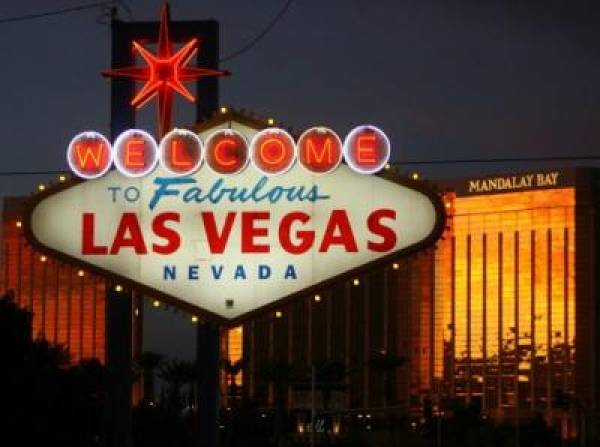Las Vegas Continues to be Paralyzed by US Economy Woes

Statewide, gambling revenue for June was down a little more than 1% at $949.3 million, according to the Nevada Gaming Control Board.
And on the Strip -- which accounts for roughly half of all gambling in the Silver State -- monthly revenue fell 3% to $486.4 million. After a relatively upbeat start to 2008, Nevada gambling revenue is down nearly 2% for the year to date, with the Strip off 1.5%.
But the real picture on the Strip, pointed out analyst Joe Greff of J.P. Morgan, is actually worse: Casinos benefited from a quirk in the reporting method that included slot-machine win from May 30 and 31 -- both weekend days.
"As such, we believe the slot win and slot hold percentage was artificially high this month," Greff wrote in a note to investors. "After adjusting for this issue results on the Strip were down 5.1% year over year."
The Strip's revenue from slot machines came in 5.5% higher as the result of the reporting method, while table win slumped 11.4%.
It's now clear that fewer people are going to Las Vegas -- and the ones who do are staying for shorter periods and spending less. In June, according to the Las Vegas Convention and Visitors Authority, volume was off 3.1%, an accelerated slip that finally dragged the year-to-date figure into negative territory, down 0.5% to 19.5 million.
Hotel occupancy was off 2.5% for the month, but it took a lot of discounting to keep the drop that modest as average daily room rates, or ADRs, plunged 16% in June.
For the first half, these two key benchmarks fell by 2% and 6.2%, respectively.
The figures were not unexpected: Most publicly traded casinos reported second-quarter financial results over the last several weeks and, without exception, those with major exposure to Las Vegas told of slumping spending.
The economic downturn isn't the only culprit.
Higher gasoline prices pressured the drive-in market, and soaring fares cut by 7% the number of visitors arriving by air during June.
In addition, the seemingly relentless expansion of gambling into other jurisdictions is another factor contributing to the Vegas blues.
Nor does Las Vegas seem likely to experience any respite in the short run.
In his survey of Strip room rates for the week of Aug. 31-Sept. 6, Greff found that ADRs were down a whopping 28% to $149, including declines of 21% for weekdays and 36% for weekend stays.
While these drops come off similarly sized percentage increases in the record year of 2007, he said that the results of the forward-looking survey "reflect the impact of a slowing economy on travel to and spend on the Strip" along with "aggressive pricing/discounting of room rates."
Greff added: "When it stops is tough to forecast with any great precision, though we think this continues through the summer."
Some parts of Clark County -- notably those geared toward the locals market -- actually showed increases in gambling revenue for June, but the picture was extremely bleak for Nevada's other main destinations: Decreases of 19% in Reno and 25% in both North and South Lake Tahoe.
Come off their lows of last month, shares of most of the major players with heavy exposure to Las Vegas have been trading at a fraction of where they were late in 2007. It's a sell-off that some see as overblown.
"Clearly, a lot of investors have discounted what this company is all about," Dan D'Arrigo, chief financial officer of MGM Mirage, told MarketWatch. "The third quarter may be kind of tough [and] trends will down year over year, but we own and manage this business for the long term."
The company "has these cycles from time to time," he continued, and even now "we are holding up a better than I think people give us credit for."
For Matthew Jacob of Majestic Research, many of the Strip's high-end properties "are feeling the impact of the weakening economy and a slowdown in consumer spending during the third quarter."
He believes the weak trends could continue, noting that "the Strip's performance is cyclical and is dependent on a stronger macroeconomic environment to return to the type of consistent growth it has exhibited over the past several years."
Still, he added, "on the positive side, it appears that trends at Wynn Las Vegas and many of the higher-end-oriented properties have continued to hold up better than most of the Strip's mass-market-oriented properties, which have experienced more substantial revenue declines."
Steve Kent of Goldman Sachs is telling clients to tread carefully before investing in most casino stocks as the pain could be around for a while.
"We expect broad domestic economic weakness to weigh on gaming trends into 2009," he said, although some companies could actually benefit.
Kent recommends looking at shares of companies such as Pinnacle Entertainment "with exposure to regional economies in Texas and Louisiana, which we believe could benefit from a booming energy industry and/or rebuilding efforts."
William Spain is a Market Watch staff writer in Chicago.













